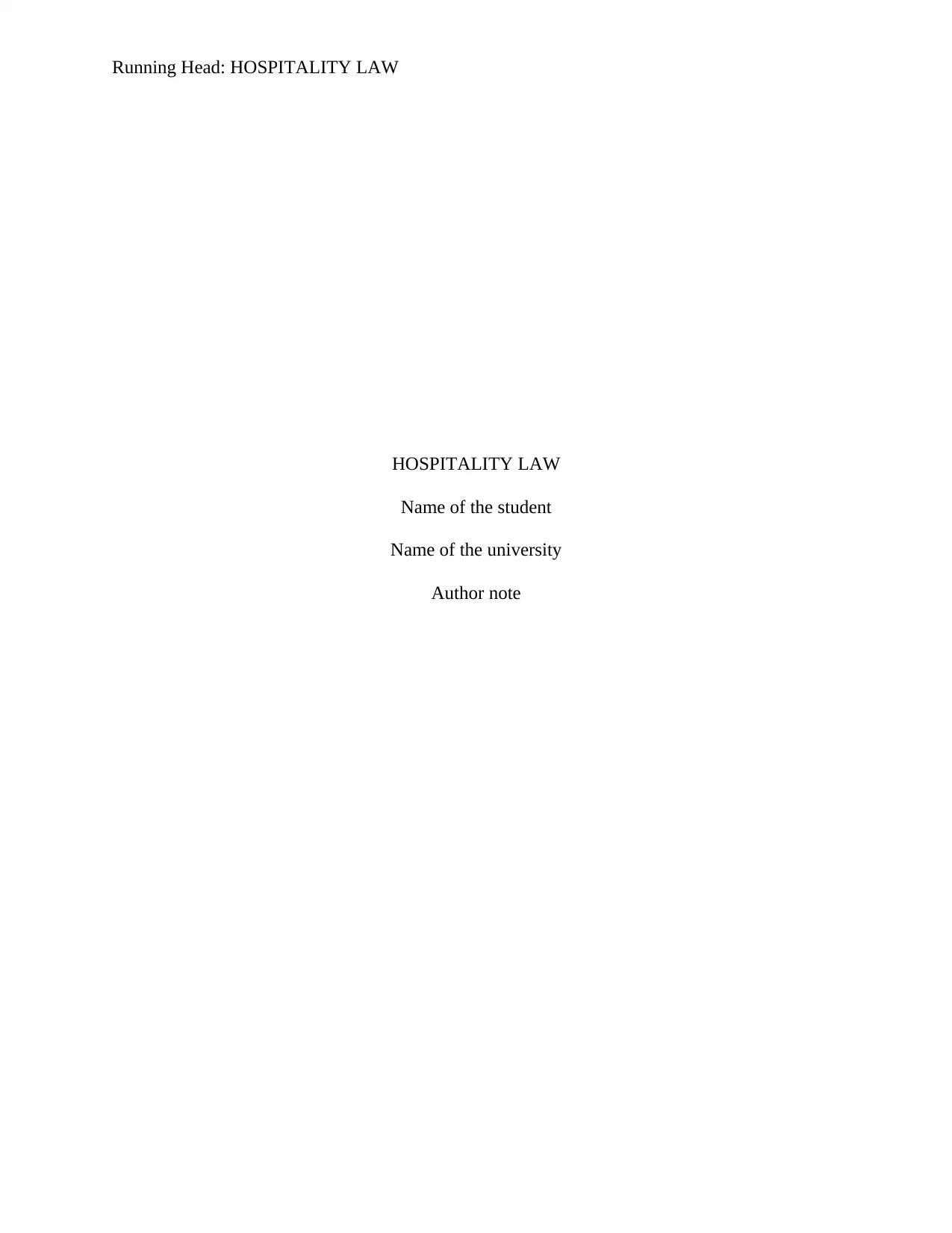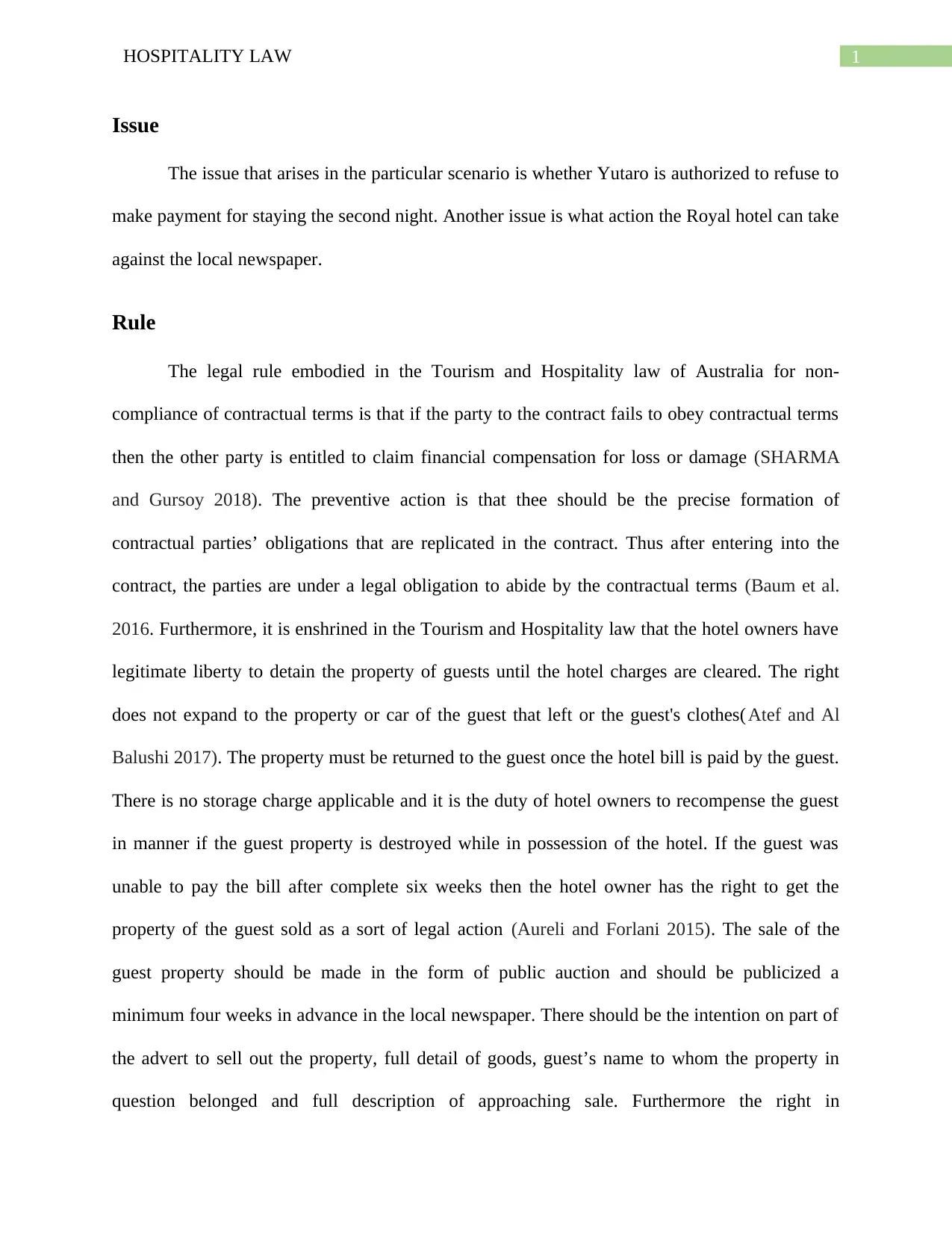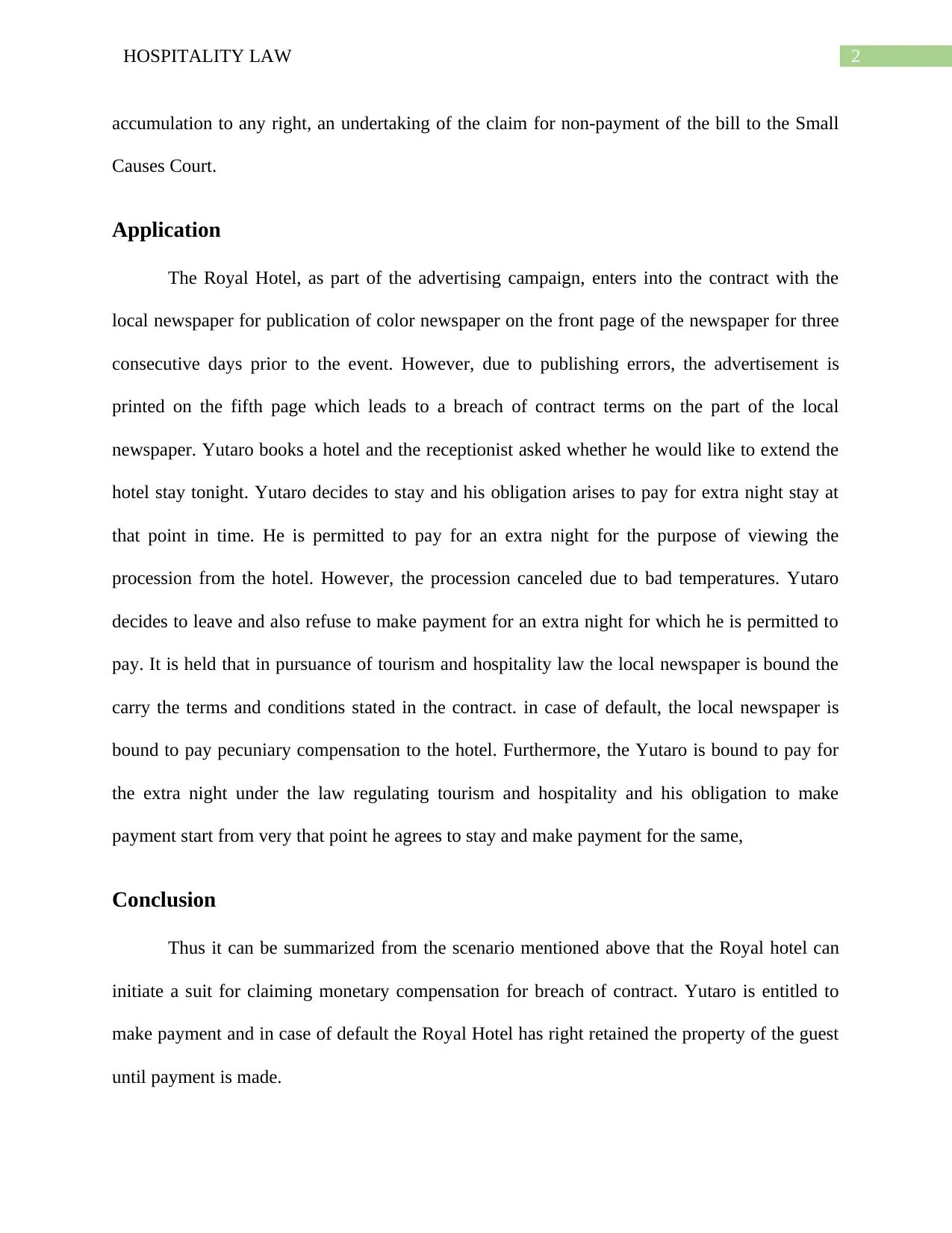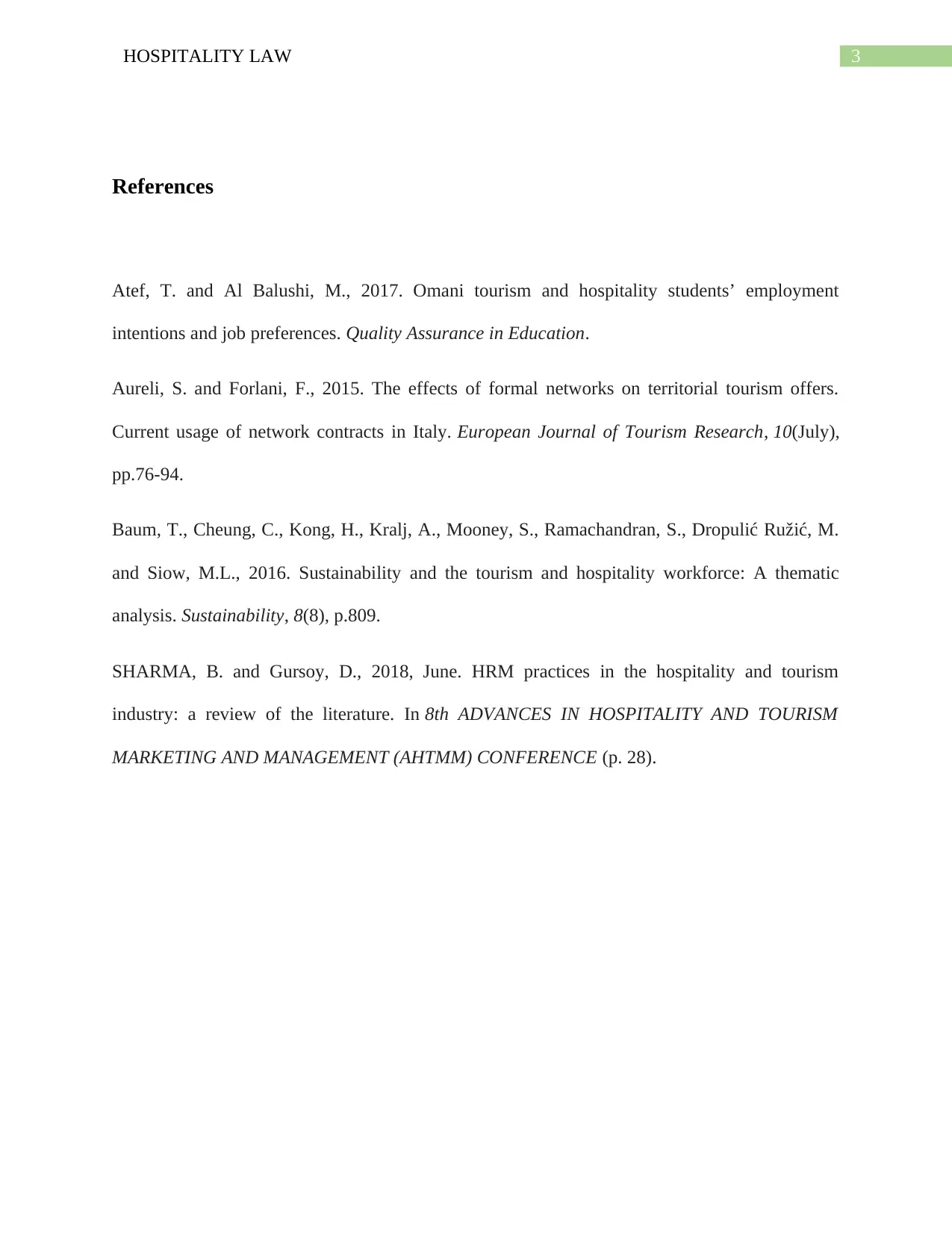Hospitality Law: Analyzing Contractual Obligations in Tourism
VerifiedAdded on 2022/08/12
|4
|886
|17
Homework Assignment
AI Summary
This assignment addresses a scenario involving the Royal Hotel in Sydney, which entered into a contract with a local newspaper for advertising to attract guests for a parade. The newspaper breached the contract by misplacing the advertisement. Additionally, a guest, Yutaro, agreed to extend his stay to view the parade but refused to pay for the extra night after the parade was canceled. The assignment analyzes the legal implications of these events, focusing on contract law principles within the context of tourism and hospitality. It examines the newspaper's breach of contract and the hotel's potential remedies, as well as Yutaro's obligation to pay for his stay. The assignment references Australian tourism and hospitality law to determine the rights and obligations of both parties, including the hotel's right to retain a guest's property until payment is made. The conclusion summarizes the hotel's right to seek compensation and the guest's payment obligations.
1 out of 4











![[object Object]](/_next/static/media/star-bottom.7253800d.svg)